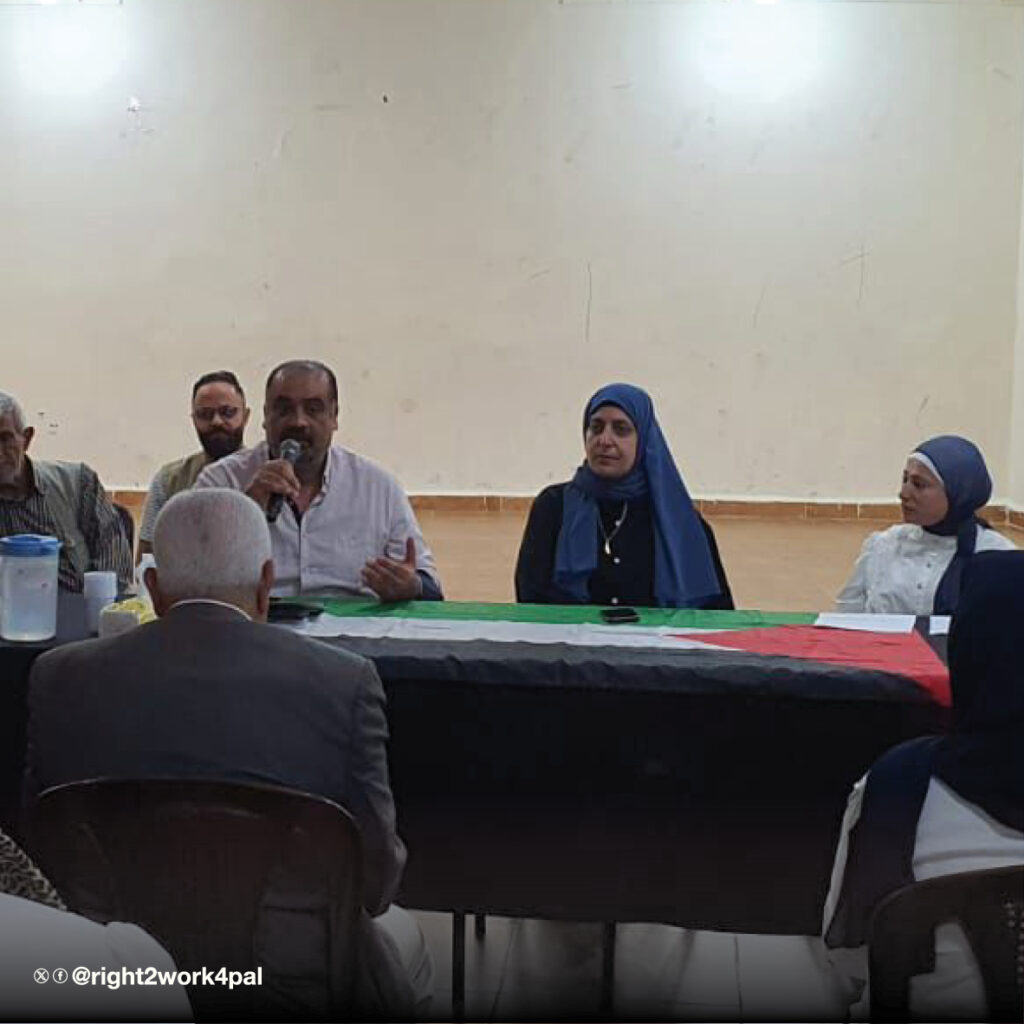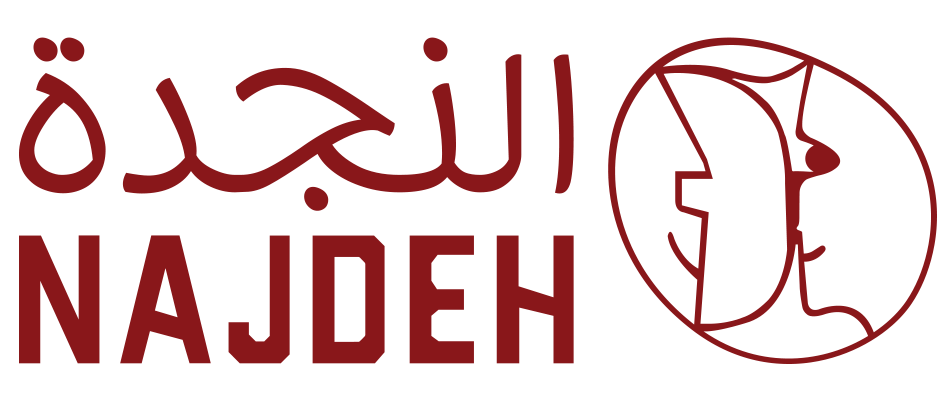
The Situation of Palestinian Refugees in Lebanon and the Impact of the Economic Crisis on Palestinian Labour in Beddawi Camp
01/05/2024
Beddawi: On the occasion of International Workers’ Day, the Lebanese-Palestinian Coalition for the Right to Work Campaign for Palestinian Refugees in Lebanon organised an interactive seminar and open discussion titled “The Situation of Palestinian Refugees in Lebanon and the Impact of the Economic Crisis on Palestinian Labour.” The event was attended by representatives of factions and popular committees, institutions and NGOs, women’s committees, local community activists, and scout clubs.
After welcoming the attendees, Ms Hanaa Al-Ainain, Coordinator of the Beddawi branch of Association Najdeh, read out the Coalition’s statement for International Workers’ Day: “No Economic and Social Justice Without Ending the Genocide of Palestinian Workers. Greetings and appreciation to workers worldwide, especially to the workers in Palestine, Gaza, the West Bank, Jerusalem, and the occupied territories. These workers, like other members of the Palestinian people, endure systematic violations by the Israeli occupation, including abuse at military checkpoints, targeting of labour and agricultural facilities, land confiscation, and suffering from genocide, starvation, and displacement in Gaza. Special recognition is given to the workers in Lebanon and Palestine who face harsh economic conditions and overcome difficulties to ensure a decent living for their families.” The key points affecting Palestinian labour were highlighted during the discussion.
Mr Ahmed Dawood, Executive Director of the Community Rehabilitation Association, spoke about advocating for workers’ rights: reasonable working hours, fair wages or daily rates, logical job requirements, respect for dignity, and appreciation. He also discussed raising awareness about transforming individual capital into collective capital, the economic crisis, the situation of Palestinian workers in Lebanon, and the inconsistent treatment of Palestinians under Lebanese laws—as refugees, foreigners, or residents. He addressed the rights-based approach and the role of Palestinians in the economy.
Ms Rola Ghamrawi, Executive Director of the Rabat Development Association, discussed Lebanese labour laws and their approach to work permits. She addressed the decision banning foreigners from practising about 75 professions and the possibility of exempting some foreigners from this decision, which has not improved the employment conditions for Palestinian refugees. She also talked about professions that could be restrictive for Palestinians and present challenges in finding job opportunities: specialised professions, technical and creative professions, scientific and research professions, and high-risk jobs.
The seminar included several valuable contributions from the attendees. At the end of the meeting, a number of workers were honoured on the occasion of International Workers’ Day in recognition of their efforts and dedication to their roles in supporting the development journey at their workplaces.
